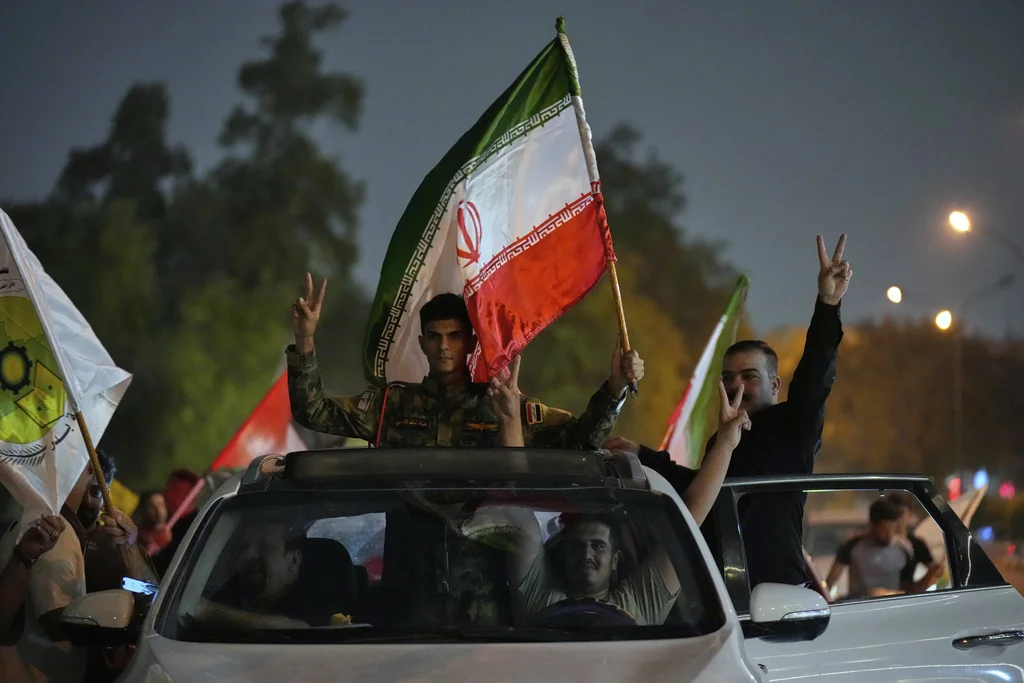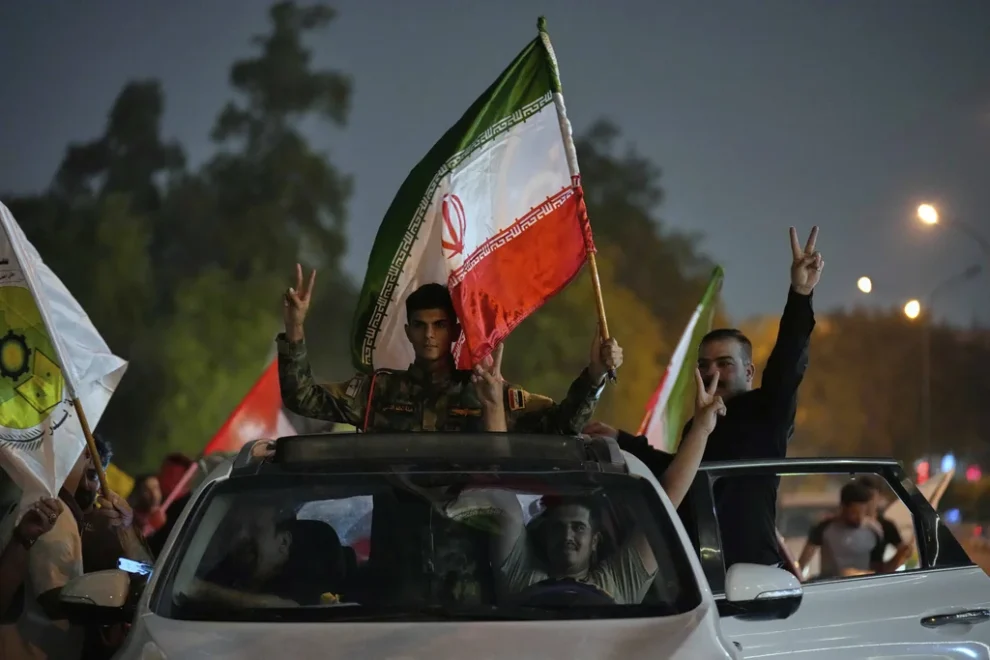Iranian Supreme Leader Ayatollah Ali Khamenei claimed victory over the United States and Israel Thursday in his first public statement since a Monday ceasefire ended the “12 Day War.”
Khamenei had been absent from the public for nearly a week before his Thursday statement, raising alarms that he’d either been killed or overthrown in a coup. He delivered his first video address, broadcast to Iran, since June 19. In the message, he declared victory over the U.S. and Israel and suggested they achieved nothing in the conflict.
“Congratulations on the victory over the fake Zionist regime,” Khamenei was quoted as saying. “The American regime entered into a direct war because it felt that if it did not enter, the Zionist regime would be completely destroyed. But it did not gain anything from this war.”

The Associated Press noted that the ayatollah seemed and sounded more tired than he had in his last appearance. He portrayed the U.S.’s intervention to bomb Iran’s nuclear sites as a desperate move to save Israel from annihilation.
The U.S.’s intervention was unsuccessful apart from apparently saving Israel from destruction, he added, as the U.S. “achieved no gains from this war.” However, Israel and the U.S. reportedly severely damaged Iran’s nuclear and missile launching capabilities.
“The Islamic Republic was victorious and, in retaliation, delivered a hand slap to America’s face,” Khamenei said, likely referring to the launch of 14 missiles against the U.S.’s Al Udeid Air Base in Qatar on Monday.
He added that “such an action can be repeated in the future, too,” as Iran has “access to key U.S. centers in the region and can take action whenever it deems necessary.”
“Should any aggression occur, the enemy will definitely pay a heavy price,” Khamenei said, warning against any future U.S. strikes against Iran.
The Monday attack resulted in no casualties, as Iran had provided the U.S. with advanced warning. Of the 14 missiles launched, 13 were intercepted, with the final landing in a remote area. President Donald Trump repeatedly thanked Tehran for the restrained response and advanced warning, using it as an off-ramp to strike a ceasefire ending the war.
Tehran implemented an internet blackout after the hostilities began on June 13, so Iranians’ perception of the conflict is largely mixed. Though no major civil disturbances were noted, much to the chagrin of Jerusalem and those hoping for the war to spark a toppling of the government, many citizens noticed that something was awry, particularly Khamenei’s absence from the public eye.
Fearful of assassination after Israel’s opening strikes killed the next three most powerful men in the country, along with over a dozen other senior commanders and head nuclear scientists, Khamenei was reportedly sequestered in a bunker, with no access to electronic communications. A host on Iran’s state TV asked an official from Khamenei’s office where the supreme leader was on Tuesday, noting a flood of concerned messages from citizens.
“People are very worried about the supreme leader,” he said. “Can you tell us how he is?”
The official answered that he had also received numerous inquiries and that the ayatollah was being protected.
Four senior Iranian officials told the New York Times that the ayatollah’s absence had led to a power struggle between different factions within the government. The struggle has led to rare displays of open animus between officials in the authoritarian country, which has long sought to project an image of a united front against Israel and its other adversaries.
WHERE DO THINGS STAND IN ISRAEL-IRAN CONFLICT? TIMELINE OF KEY EVENTS
“We’re not supposed to fight Israel day and night for 12 days and now deal with the likes of you! Who are busy completing the enemy’s puzzle with your pens,” Iranian President Masoud Pezeshkian’s chief of communications, Ali Ahmadnia, said in a social media post responding to conservatives’ criticisms of the president and his Cabinet.
The war claimed the lives of 29 Israelis and over 600 Iranians, with thousands of more casualties.
























